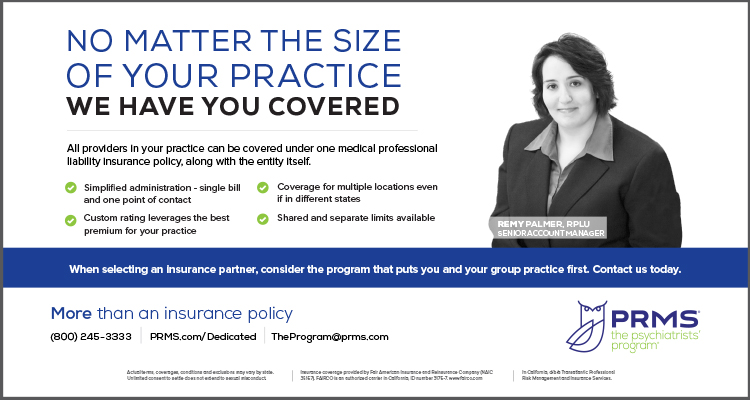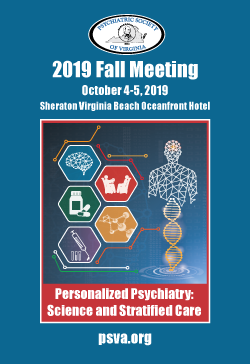Spring 2019 Issue |
|
Legislative Update
 |
Mark P. Hickman |
By James Pickral and Mark Hickman
Commonwealth Strategy Group
2019 Session Summary
Budget Compromise, Sine Die and Reconvened Session
Tax conformity and the budget began as this session’s major issue before the scandals and controversies that consumed the capital this year. The recent federal tax cuts potentially created a revenue windfall of about $1 billion for Virginia and required that the General Assembly decide whether and how to align Virginia’s tax code with new federal standards so Virginia residents could file their tax returns. The Governor had hoped to issue a refund as a tax credit for low-income working families and use the surplus to fund budget priorities. Republicans preferred to issue a broader refund to middle class taxpayers.
After the scandals broke, the Governor and the General Assembly quickly and quietly agreed on a compromise that Northam recently signed. The emergency tax legislation allows Virginians to properly file their tax returns this year. The compromise gives a rebate to taxpayers this year and then raises the standard deduction next year to conform to the federal Tax Cuts and Jobs Act. Monies left to fund budget priorities were far lower under this plan, and the state budget that Senate and House conferees agreed to focus on items that must be fully funded and other shared high-priority areas like K-12 education and higher education, affordable housing, broadband internet access and economic development. Many of the Governor’s original one-time budget requests were cut.
The General Assembly had to extend session by one day in order to give lawmakers a full opportunity to review the budget compromise. The 2019 regular session adjourned Sine Die on Sunday, February 24. The Governor had until March 26, 2019 to act (sign, amend or veto) on all legislation, including the budget, passed by the General Assembly. The legislature reconvened on April 3 to vote on whether to accept or reject the Governor’s actions.
Legislation of Interest
Balance Billing Reform – Support
- SB 1763 (Sturtevant) / HB 1714 (Ware). Dead. These bills would have addressed balance/surprise billing, the top issue for the physician community this session. The legislation was a compromise solution strongly supported by physicians, hospitals and patient advocacy groups. It would have prohibited balance billing in the emergency department but also would have required fair reimbursement for providers. The health plans opposed the bills and raised concerns toward the end of the legislative process about the fiscal impact to the state employee health plan. As a result, the legislation was sent back to the House Appropriations Committee where it effectively died without a hearing.
- HB 2538 (Ware). Signed by Governor. Requires patient notification for elective services. Protects patients by notifying them when a service may be out-of-network but without placing an administrative burden on the referring physician.
- Budget Update: The budget contained problematic language setting up a workgroup (slanted in favor of the health plan) regarding balance billing. MSV and the physician specialty groups sent letters asking the Governor to either strike or amend the language.
- Governor’s Action: On March 27 the Governor’s amendments were released, and we were pleased that he included Amendment 14 (Item 281) that directs the Secretary of Health and Human Resources, in collaboration with the Secretary of Administration, Secretary of Finance, and the State Corporation Commission to convene a workgroup to evaluate options to establish equitable and fair reimbursement to out-of-network healthcare providers for emergency services rendered, which could be used for potential future legislation prohibiting the practice of balance billing by out-of-network emergency services healthcare providers, with a report on the workgroup's proposal due to the Governor and Chairmen of the House Appropriations and Senate Finance Committees no later than November 15, 2019. The amendment ensures that provider, hospital and patient advocate stakeholders are included in the workgroup, in addition to the health plan. We believe this amendment creates a fairer, more balanced approach to study this issue. A separate amendment, Amendment 23 (Item 477) removes language requiring the SCC to convene a workgroup in order to move the workgroup within the Secretary of Health and Human Resources.
- Reconvened Session Update: The General Assembly voted to accept the Governor’s amendment. The workgroup will likely begin to meet this summer.
Certificate of Public Need (COPN) Reform – Support
- SB 1526 (Sturtevant). Dead. This bill would have exempted psychiatric beds from COPN and replaced it with a permitting process. It died on the Senate floor, 14-26.
- SB 1614 (McDougle). Dead. This bill would have similarly removed urologic, endoscopic and ophthalmic surgery lines from COPN. It died on the Senate floor 19-19, with the Lt. Governor as tie-breaker voting no.
- Update: The Governor’s office has initiated a formal stakeholder mediation and consensus-building process on COPN. We understand the Administration would like a product by October of this year.
Health Credentialing for Mental Health Professionals – Support
- SB 1685 (Dunnavant). Signed by Governor. Bill requires health carriers to establish protocols and procedures for reimbursement of mental health professionals who have submitted a successful credentialing application for services provided during the period in which the applicant’s application is pending.
Physician’s Assistants (PA) – Monitor
- SB 1209 (Peake) / HB 1952 (J. Campbell). Signed by Governor. This legislation amends PA practice structure to be modeled after the collaborative practice model previously used for nurse practitioners. Both bills passed the General Assembly, were signed by the Governor, and will become effective July 1, 2019.
Step Therapy Reform – Support
- HB 2126 (Davis). Signed by Governor. Requires carriers issuing health benefit plans that develop step therapy protocols for a health benefit plan to ensure that those step therapy protocols are (i) developed and endorsed by a multidisciplinary panel of experts that manages conflicts of interest among the members; (ii) based on peer-reviewed research and medical practice; and (iii) continually updated based on a review of new evidence, research, and newly developed treatments. The bill requires that when coverage of a prescription drug is restricted by a carrier or utilization review organization through step therapy, the patient and prescriber have access to a clear, readily accessible, and convenient process to request a step therapy exception, which will have conditions under which a request for a step therapy exception shall be granted. A patient will be able to appeal a step therapy exception request denial. The provisions of the measure will go into effect on January 1, 2020.
Budget Items of Interest
- Virginia Mental Health Access Project (VMAP) Governor’s Budget Item 311 #F. Funds were included in the Governor’s introduced budget for VMAP, which has received three separate grants and has partners and supporters throughout the state committed to helping children get the mental health services and treatment they need. The program is already providing services in some regions. The $1.23 million allocated in the Governor’s budget will get VMAP off the ground and enable it to fully expand statewide.
- Modify ED Care Coordination System to Track TDOs Item 297 #4c. Department of Health (VDH). Provides $50,000 from the general fund the second year to modify the Emergency Room Care Coordination Program to track individuals who present in the emergency room and become subject to a Temporary Detention Order and require the information be made available publicly.
- Medicaid Telehealth Site Facility Fee (Item 303 #1c). Department of Medical Assistance Services (DMAS). Provides $23,215 from the general fund and $27,529 from federal Medicaid matching funds to increase the Medicaid telehealth originating site facility fee to 100 percent of the Medicare rate, including annual Medicare fee increases. This a recommendation of the Deeds Commission.
- Medicaid Behavioral Health Services Realignment (language only) Item 303 #3c. DMAS. Adds language authorizing the realignment of behavioral health services to ensure the system supports evidence-based, trauma-informed, prevention-focused and cost-effective services for individuals served across the lifespan. Language requires a plan on the changes in provider rates, new services and other programmatic or cost changes to the Chairmen of House Appropriations and Senate Finance Committees by December 1, 2019. Agency authority to implement the changes is contingent on approval of the 2020 General Assembly and the federal Centers for Medicare and Medicaid Services.
- Medicaid Mental Health Professional Rates Item 303 #10c. DMAS. Provides $2.6 million from the general fund and $4.5 million from federal Medicaid matching funds to increase the Medicaid rates for mental health practitioners who bill for psychiatric services. These rates are lower than Medicare and commercial rates, resulting in fewer providers accepting Medicaid patients in need of these services. It is the intent of the General Assembly that in the enrolling of this act, funding included in this item shall be allocated among appropriate items within DMAS.
- Modify DSH Methodology for TDO Utilization (language only) Item 303 #11c. DMAS. Directs DMAS to develop a new methodology for the allocation of Disproportionate Share Hospital (DSH) payments to increase reimbursement to hospitals that are serving more individuals who are subject to temporary detention orders and likewise to reduce reimbursement to hospitals whose utilization of such TDO services declines. This program is intended to assist in reducing census pressure on the state mental health hospitals.
- DBHDS - Behavioral Health Services Realignment (language only) Item 310 #1c. Department of Behavioral Health and Developmental Services (DBHDS). Adds language authorizing the promulgation of licensing regulations by DBHDS, upon approval of the 2020 General Assembly, to support the realignment of behavioral health services to ensure the licensing system supports evidence-based, trauma-information, prevention-focused and cost-effective services for individuals served across the lifespan. These actions will support those being undertaken to realign behavioral health services funded through the Virginia Medicaid program and contained in a companion amendment in Item 303. This is a recommendation of the Deeds Commission.
- Workgroup and Plan for Relieving Census Pressure and Right Sizing the State Behavioral Health Hospital System (language only) Item 310 #4c. DBHDS. Directs the Department of Behavioral Health and Developmental Services (DBHDS) to establish a workgroup, which shall include the Virginia Hospital and Healthcare Association and other stakeholders to examine the impact of Temporary Detention Order admissions on the state behavioral health hospitals and develop options and an action plan to relieve census pressure. The action plan must also take into account the need to take short-term actions to relieve the census pressure on state behavioral health hospitals in order to develop a plan for the right sizing of the system. In addition, the amendment directs DBHDS to develop a proposal for Central State Hospital that fits within a "right sized" system.
- Reporting and Data on Community Services Board Revenue Impacts (language only) Item 310 #9c. DBHDS. Modifies language in the introduced budget which allows DBHDS to provide funding from special fund balances at the end of the fiscal year to CSBs in circumstances where a CSB's additional fiscal year 2019 Medicaid reimbursements do not reach at least 90 percent of the general fund reductions assumed in Chapter 2 for fiscal year 2019. The amendment contains other clarifying provisions and requires the department to report to the Secretary of Finance and the Chairmen of the money committees on how the expected general fund savings compare to actual Medicaid payments for fiscal year 2019 so that the expected general fund savings in fiscal year 2020 may be adjusted in amendments to the biennial budget during the 2020 Session of the General Assembly, if necessary.
- Regional Mental Health Coordination in Northern Virginia (language only) Item 310 #10c. DBHDS. Re-creates a public and private collaborative process in Northern Virginia that existed in the last decade to better and more comprehensively address needs within the region, share responsibility for meeting those needs, and strive to have individuals with mental health needs have those needs met in ways and programs that best meet their needs in cost effective ways. DBHDS is required to report on the workgroup by November 30, 2019.
- Designate Funding for STEP-VA Crisis Services (language only) Item 312 #2c. Localities. Designates $7.8 million from the general fund the second year to accelerate the provision of crisis services at Community Services Boards and Behavioral Health Authorities pursuant to the STEP-VA process and Chapters 607 and 683, 2017 Acts of Assembly. Legislation passed in 2017 requires the implementation of crisis services to begin in fiscal year 2021.
- Designate Behavioral Health Trust Fund Appropriation (language only) Item 312 #4c. Designates $750,000 the second year from the Behavioral Health and Developmental Services Trust Fund, out of the $2.5 million in the introduced budget, for one-time expenditures for developmental disability services, with priority given to projects that serve individuals with developmental disability in the Northern Virginia region (Region 2) who have been discharged from state training centers or who are at risk of institutional placement. The department will report on the allocation of these funds to the Chairmen of the money committees by no later than September 15, 2019.
- Permanent Supportive Housing Item 312 #5c. Localities. Adds $3.0 million the second year from the general fund to increase funding for permanent supportive housing services. It reallocates $1.0 million in funding in this item for crisis services designated in the introduced budget and adds $2.0 million from the general fund in the second year for this purpose. Language is added to require DBHDS to report on permanent supportive housing services by November 30, 2019.
- Appalachian Telemental Health Initiative Carryforward (language only) Item 312 #6c. Provides that unspent funds allocated for the Appalachian Telemental Health Initiative will not revert to the general fund at the end of the fiscal year and will be carried forward to bring the unspent funds into the next fiscal year for the same purpose. This is a recommendation of the Deeds Commission.
Governor’s Amendments to the Budget
The Governor made a total of forty amendments to the budget passed by the General Assembly. In addition to the balance billing workgroup amendments mentioned above, below are other amendments of interest accepted by the General Assembly:
Amendment 2 (Item 1): Extend Joint Subcommittee Studying Mental Health Services. This amendment extends the work of the Joint Subcommittee Studying Mental Health Services in the Commonwealth in the 21st Century, commonly referred to as the Deeds Commission, to the end of the biennium.
Amendment 16 (Item 310): Amend Language Related to Right-sizing the Behavioral Health System. This language amendment clarifies that separate reports will be issued on the impact of Temporary Detention Order (TDO) admissions on state hospitals and a plan to “right size” the state hospital system to be issued by October 15, 2019, and November 1, 2019, respectively. In addition, language is added that requires the Commissioner of DBHDS to review the feasibility of relocating forensic beds away from Central State Hospital (CSH). This analysis shall include a review of the cost, timeline, and workforce impact of relocating CSH’s forensic beds to a different location. A separate amendment to Item C-48.10 authorizes construction of a replacement facility at CSH.
Amendment 28 (Item C-48.10): Replace Central State Hospital. This amendment adds $315,000,000 from the Non-General Fund for a project to replace Central State Hospital with a 252-bed facility to the 2019 Capital Construction Pool.
PSYCHMD PAC and 2019 Elections
2019 is a pivotal election year in Virginia. It is not an overstatement to say that this year’s election may be one of the most critical for the Commonwealth in a generation. All 140 seats in the General Assembly – 100 in the House of Delegates and 40 in the Senate – will be on the ballot. Both chambers are under narrow Republican control, 51-49 in the House of Delegates and 21-19 in the Senate of Virginia. We fully expect partisan control of both chambers to be at stake this election.
PSYCHMD PAC is a critical tool in our advocacy program. It allows us to support legislators who are friendly to our profession and issues in the General Assembly. Every year the legislature considers bills that could potentially impact our profession and patients. A strong PAC provides us the opportunity for our voice to be heard by elected officials in the legislature and executive branch. Our PAC enables us to support legislators who support our profession. Our goal is to keep Delegates and Senators who are friendly to our issues in the legislature.
Please consider making a donation to PSYCHMD PAC and encourage your peers to donate.
Thank you to all our donors this year!
YOUR NEWSLETTER IS NOW AVAILABLE ON YOUR SMARTPHONE AND TABLET!
JOIN PSV TODAY!
PLAN NOW!
PSV 2019
FALL MEETING
October 4-5, 2019
Sheraton Virginia Beach
Oceanfront Hotel
APA Find a Psychiatrist
Are you accepting new patients?
Opt into APA’s “Find A Psychiatrist” database. To view the functionality or opt-in,
CLICK HERE
FYI: A link for this option has been added to the PSV website. Select the “About” button and then “Find a Psychiatrist” from the drop down.






